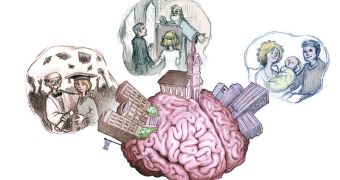Following a new study, researchers at the University of Pennsylvania believe they may have finally uncovered why the human brain forms memories that contain not only an account of what has happened, but also location data that help us place the event in context.
When we remember important life events, we remember where the events took place as well, but we do so automatically. This means that the data is wired into the actual memory. Scientists now believe they may have uncovered the reason why this information is added inside episodic memories.
According to the research team, a structure in the human brain called the hippocampus contains a series of special cells that are capable of geotagging events, similar to how photo cameras do it. The process is described in a paper published in the latest issue of the top journal Science.
Study researcher and UP psychologist, Michael Kahan, says that this type of tagging essentially fuses memories and location data together. This enables us to remember a certain event when we visit the place where it happened, and to remember a certain place when we think of a previous experience.
The expert was part of the international group of researchers that was able to figure out how hippocampal geotagging works after studying the brains of seven epileptic patients in Germany. Each test subjects had electrodes implanted in their brains ahead of surgery.
These devices enabled scientists to measure electrical impulses in various areas of the brain, and map how individual neurons light up in response to stimuli. The team used these data to determine how memories are stored in, and retrieved, from the brain, NPR reports.
Boston University researcher Howard Eichenbaum, who was also a member of the research team, says that the hippocampus was found to map events in both time and space. He adds that so-called time stamp cells have yet to be discovered in the human brain. However, studies on rats have revealed that other species possess such cells.
Future experiments will be focused on identifying time stamp cells (if they exist), and on figuring out how they interact with the hippocampus to form integrated episodic memories in time and space.

 14 DAY TRIAL //
14 DAY TRIAL //